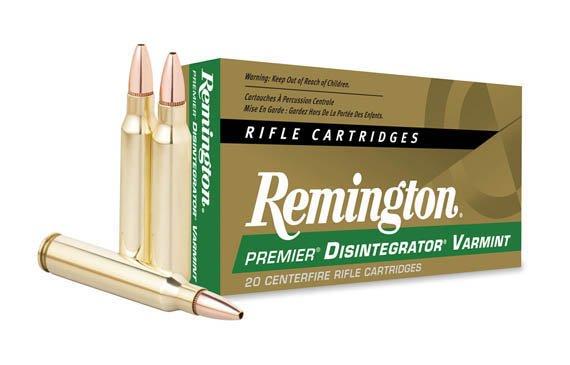Is California Moving Toward Being an Ammo-Free State?

The main reason for the concern about lead ammunition, claim bill supporters, is that lead's toxins poison scavengers, such as condors. The state has been tracking condor death rates in eight counties that enacted a lead ban in 2008, and so far, the rate has not decreased.
Yet, proponents point to studies from University of California, Davis, and the University of California, Santa Cruz, that report birds of prey are poisoned more during hunting seasons, and that lead isotopes in the birds' systems match the isotopes found in the related hunting ammunition. Opponents, such as the National Rifle Association and National Shooting Sports Foundation, claim the reports are in error and specifically tailored to show these findings in order to cause emotional stirrings among the populace.
Meanwhile, California – which boasts an 80 percent urban population – continues to think it leads the way in conservation practices for the rest of the country. It continues to legislate its wildlife management.
However, what I'm even more concerned about is what happens after this bill passes, which I think it will. Will the lead-haters then turn to shooting ranges in the state and ban lead ammo there because their motive is to rid the state of all ammunition and firearms?
OK, you say. Just go and buy non-lead ammo. Not so fast. Non-lead ammo is more expensive, so that limits the amount shooting enthusiasts and hunters can buy.
And there's more to be concerned about in regard to non-lead ammo, and it concerns all 50 states. The Bureau of Alcohol, Tobacco, Firearms and Explosives allowed public comments at its website last year so that it can determine whether to impose restrictions on “projectiles” used in rifles and handguns. Not available any longer, but previously published on its website, according to the Sunlight Foundation, the ATF called for the following: "ATF is seeking public comments on specific projectiles or projectile cores which may be used in a handgun and which are constructed entirely from one or a combination of tungsten, alloys, steel, iron, brass, bronze, beryllium, copper or depleted uranium, and whether these projectiles or projectile cores pose a threat to public safety and law enforcement, or are, 'primarily intended to be used for sporting purposes' and therefore may be exempted from classification as 'armor piercing ammunition.'"
The ATF wants to take another look at which projectiles meet the “sporting purposes exception” to the federal armor piercing ammunition law, passed in 1986. Armor piercing ammunition is defined as "a projectile or projectile core which may be used in a handgun and which is constructed entirely (excluding the presence of traces of other substances) from one or a combination of tungsten alloys, steel, iron, brass, bronze, beryllium copper, or depleted uranium.” In the 1990s, a second definition included the following criteria: a full jacketed projectile larger than .22 caliber designed and intended for use in a handgun and whose jacket has a weight of more than 25 percent of the total weight of the projectile."
The ATF is looking at rifle caliber projectiles made of metals harder than lead because these components can pierce ballistic-resistant vests. This ammunition includes Barnes Bullets solid brass hunting bullets and other similar designs.
Since the aforementioned law passed, handguns have been manufactured in some rifle calibers, so now this ammunition can be fired from a handgun. So, in essence, the ATF is considering classifying some of this ammunition as “armor piercing." Will it be exempt any longer from sporting uses? Time will tell.
Perhaps California will lead the way in the near future for not allowing any ammunition to be fired, unless it is a very large caliber bullet that no one would ever consider firing from a handgun. It appears that hunters and shooters could be boxed in by lead-haters on one side and an ATF ruling on the other.







